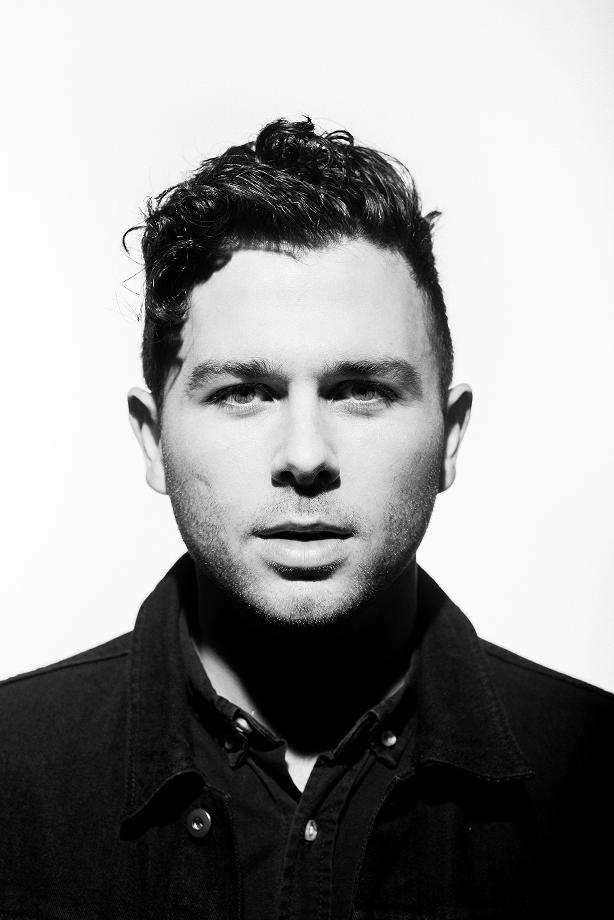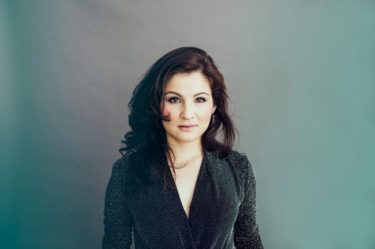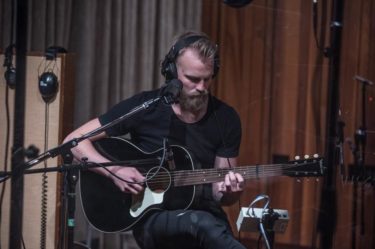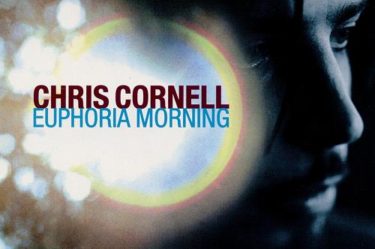Interview: Max Kerman of Arkells
Arkells venture into new territory (strings!) with the release of their third album, High Noon. The band – Max Kerman, Mike DeAngelis, Nick Dika, Anthony Carone, and Tim Oxford – is one of Canada’s most beloved rock ‘n’ roll acts, known for their workman-like touring ethic and signature singalong hooks.
Released in 2008 on the indie label Dine Alone Records, Arkells debut album Jackson Squarewas recorded in two weeks. A little rough around the edges, it drew on Motown influences and spawned three radio hits: “Oh, The Boss Is Coming!,” “The Ballad of Hugo Chavez,” and “Pullin’ Punches.”
The band’s next album, Michigan Left, was released in 2011 on Universal Music Canada. This one took about a month and produced a more polished sound, with layered keyboard and guitar parts. The first single, “Whistleblower,” is one of their more political songs, with a lyric inspired by the New York Times Pulitzer Prize winning reporter, David Barstow.
Arkells lead singer and guitarist, Max Kerman, took the time to discuss High Noon while driving to Kingston, Ontario for their show that night. Kerman revealed in this conversation why they chose to create their most adventurous album yet, the influence that sports and politics has had on their lyrics, and how the fusing of their favorite music inspired some of the new songs.
Laura Antonelli (Songfacts): The band wrote High Noon in its jam space in Hamilton, Ontario last summer. Describe the songwriting process for the album. Did one person come up with an idea for a song or was it more like a jam session?
Max Kerman: The songs start with me but they are bare bones ideas. It’s usually based on a simple chord melody that I’m attached to at the time and a couple standout lyrics. I’ll have a verse and a chorus together, but they have to be exciting enough for me to bring to the band. So it’s usually just the first 10 percent of a song [laughs]. Everybody gets their hands on the songs from there and we hack away at them until they feel good. Some songs will feel like a million bucks by the end of the day and then some will take a few months to make sense, so each time is a little different.
Songfacts: Tony Hoffer produced the album. He was at the top of your wish list of producers to work with and it was recorded in his studio in LA. What was the experience like working with him?
Max: It was great. He’s a meticulous, well-organized guy. He loves different kinds of music – one of the appeals of working with Tony was that he wasn’t known for being a folk, electronic, or rock guy. He’s done all those different kinds of records. He has this cool, little, modest space in Highland Park, which is a small up-and-coming neighborhood. It’s not downtown or near Hollywood, so the days were mostly just filled with working away.
Most people assume when you make an album in LA that you’re living a Guns N’ Roses lifestyle and you’re partying on Sunset Strip every night. It was mostly going to the studio, working our asses off for twelve or fourteen hours, and then going to bed because we were so tired. So we don’t have any VH1 Behind the Music stories to report for this one. We did go to a couple of basketball games, though, which was fun.
Songfacts: You said in an interview that the production on Michigan Left was a reaction to the production on Jackson Square, and now the production on High Noon is a reaction to the production on Michigan left. Can you explain in what specific ways the production differs on High Noon?
Max: Yeah, definitely. We wanted to make a different record. It would have been the coward’s way out to do something that sounded like Michigan Left or Jackson Square because we’ve already made those records. I think it’s more exciting if the band follows our hearts and our ears by chasing the next thing.
We worked with a strings section on a number of the songs, which was exciting for us. Our keyboard player, Anthony, scored and wrote the arrangements for the strings. Tony Hoffer has worked with M83 and Phoenix, so he has a good feel for the synthesizer ’80s sound that we dialed into a little.
The songs themselves have a bit more space in a lot of occasions. We’re a sucker for pop arrangements but we weren’t afraid to go outside the box on this record. We do some little left turns every once in awhile, which is fun. “Never Thought That This Would Happen” is a five-minute jammer and the structure is definitely different. When I listen to some of my favorite records, they are the ones that don’t sit in a box – they are not afraid to take chances when it comes to mixing or a song structure. I think those things exist on this record.
Songfacts: Was the title of the album at all inspired by the 1952 western, High Noon, starring Gary Cooper and Grace Kelly? In “Fake Money” – and I hope I’m hearing this lyric correctly – I think you sing, “You’re some cowboy at high noon.”
Max: Yeah, you got it. It’s definitely inspired in part by a cinematic theme with the strings and some of the musical moments on the record. The album is talking about subjects in a head-on manner. I think at high noon there is a moment of complication and there should be some clarity after the fact. A lot of these songs are trying to provide that clarity. You have to take a subject on directly and then you’ll be able to make sense of it afterward.
Songfacts: Let’s talk about “Fake Money.” It’s the first song on the album and you have this aggressiveness in your voice that is sort of reminiscent of “Deadlines” on Jackson Square.
Max: Yeah, totally! It’s good that you say that because it’s sort of a “Deadlines: Part 2.” We wanted to come out swinging on the record. We like an album that has variety and goes in a lot of different directions, but at our core we’re a five-piece rock and roll band. We’re proud of being that, so it’s sort of a protest song. It’s definitely meant to be a fist pumper. It’s okay to be pissed off when you’re singing about those kinds of subjects [laughs].
Songfacts: “Never Thought That This Would Happen” was the first song released from the album. It was inspired by the Hillside Festival in Guelph, Ontario. The band describes the song as a “slow burner” and as you mentioned, it features a strings arrangement. Can you share the story behind it and the songwriting process for it?
Max: It started off as more of an acoustic idea. The rhythm is something that we’ve never used before, but I’ve always loved it. My Morning Jacket uses it a lot. We actually saw My Morning Jacket use that kind of rhythm live at a festival – something in the mid-tempo range feels good when it’s blaring across a field at those outdoor shows.
I think dance music in some ways is better in a club at night, and we have a number of those kinds of songs, too. So we were excited to try something different and to explore that world. The song is playing to that groove and has a southern feel to it.
In terms of the story behind the song, it’s based on a couple of friends of mine at the Hillside Festival. There’s something fun about being a young adult and going on a camping trip or to a music festival with twelve of your friends. I always feel like good stories emerge out of those weekends. If I’m not with my friends on a weekend, I’ll always say on the Tuesday, “Alright, give me some stories. I want to hear what happened” [laughs].
Songfacts: “Come to Light” was inspired by a couple of things. One being a bad driving experience. Is it true that the chorus borrows from the book, The Soul of Baseball: A Road Trip Through Buck O’Neil’s Life?
Max: Yeah, it takes from a few different inspirations. The general idea is just keeping your shit together when you’re going through a tough time. I was using the metaphor of being in the dark and just making it to the next day so you can sort everything out.
I read a book that is a biography on this baseball player named Buck O’Neil. He was a great baseball player in the early-to-mid twentieth century in America. He lived in a time with segregation and he didn’t have any luck going for him when it came to his place in this world. He was a black man living in the American south. He had such an amazing positive attitude and rose above everything. He encouraged everybody to always act with dignity and courage even when you’re put to the test. What I go through is obviously nothing compared to what he would have gone through, but I think that message is a strong one: Always try to treat people with compassion and respect no matter what’s happening.
Songfacts: Your love of sports finds its way into your lyrics quite a bit. “Kiss Cam” takes place at a ball game and “Agent Zero” is about the basketball star, Gilbert Arenas. What is it about sports that you connect with so much?
Max: I’m a consumer of it [laughs]. I love the storylines that happen in sports culture. I read a lot of sports journalism. It’s just something that I personally find to be entertaining.
You know that saying: You write about what you know and what you think about? In popular culture there are examples of sports and arts culture melding together. Philip Roth is one of my favourite authors. He talks about America and baseball a lot in his books. I’ve always thought that he’s done a great job of combining the two worlds together because I don’t think that they are necessarily that far apart.
Songfacts: The band calls “11:11” the most romantic song it has ever written. And that all the other “tender-Arkells” songs were disguised as love songs but were actually more complaining about love songs. Can you expand on that thought and explain how “11:11” is different?
Max: Yeah, there are songs about love and then there are love songs. Songs about love can go into a variety of different directions. They can be about heartbreak, depression, or sadness. Love songs can only truly be about the joy of it all.
“11:11” came from an honest place. I guess I can say that it’s somewhat autobiographical. There are a few choice lines that stem from me just observing my friends going through a good place in life when it comes to their romantic situation. I always love it when they put their partner up on a pedestal.
There’s a line in the song, “I couldn’t hold a candle to ya,” which is just about having this admiration for the other person. I think it’s sweet and healthy, too. It can be a positive thing when you put your partner up on a pedestal.
Songfacts: What’s the story behind “Cynical Bastards?” Because there’s a Jackson Square reference in it when you sing, “Jackson Square dropouts avoid the police.”
Max: Yeah, a lot of people say that Hamilton is the armpit of Ontario. There’s a glee and a smugness that some people take in saying such a thing about a place that they’ve never even lived in before. I’m probably guilty of it too about another place. I’ve probably done the same and committed the same crime. I always find it odd and depressing, though.
The reality of Hamilton and of a place like Detroit, Cleveland, or any other great industrial city is that these places have not been dealt a great hand. It’s no fault to the people who live there. People are dealing with forces much greater than them such as globalization.
The song hearkens back to what your mom told you: If you don’t have anything nice to say then don’t say it at all. It also salutes the people who are in those places who are trying to make a difference and make it better. So “Cynical Bastards” is essentially an ode to everybody in Hamilton who is working hard, investing their time, money, and energy. Who are pouring love into the city to make it a great place for me to live, which I’m extremely appreciative. I think the city has evolved in a positive way over the last five or ten years. It’s also a message to the people who don’t have anything nice to say: We don’t need you around anyway. You can go back to wherever you came from.
Songfacts: Arkells has mastered writing about serious subject matters like politics and religion but combining the lyrics with upbeat, danceable melodies. “What Are You Holding On To?” seems to fall into this category. What was the inspiration for that song?
Max: Yeah, you’re listening hard. Thank you. I always like it when rock and roll music has seriousness to it. I think The Clash does that well. I was actually listening to a lot of The Clash while we were writing the record. I loved how they could write a pop banger like “Rock the Casbah” but then have a serious political message to it.
“What Are You Holding On To?” is about accountability. Not just to your family or your god, but accountability to everybody in your community and to the people who you don’t know. The lines in the chorus, “What are you holding on to? You’re just talking to the stars above you. What are you holding on to? You’re saying that only God can judge ya.”
I’ve always hated that expression “only God can judge me,” to be honest [laughs]. I do get what people are trying to say. I think “only God can judge me” is a bit of a cop-out so that you don’t have a responsibility to anybody but your god. The fact of the matter is that we’re all in this together. Pleading as if you have it tough so you’re only going to look out for yourself, I always find that to be a little discouraging. So the song is a reminder because that’s not actually the case.
Songfacts: What’s the story behind “Leather Jacket” and the abnormal use of a payphone at 2 a.m.
Max: Ha! “Leather Jacket” was inspired oddly enough by the song “When No One’s Watching.” I’m a huge The Hold Steady fan. The lead singer, Craig Finn, put out a solo record and that song is on it. I think it’s amazing. Craig Finn has an incredible way of writing about the nightlife of young people in the city. He’s so good at focusing in on that topic.
I wanted to have a song like that on the record. I had a few people in mind for who the song would be about, so it’s not about a specific person. The idea is that if you have a friend calling you at two in the morning from a payphone, the chances are that shit isn’t going well that day or just in general [laughs]. The song is about understanding, too. When friends find themselves in that kind of situation, there’s usually some other reason that is causing it beneath whatever is happening in the moment. It’s about understanding where people are coming from and just being a supportive person. I’ve been in that situation myself, too. I’ve been there before and I’ve had friends come bail me out.
Songfacts: The keys are strong and prevalent on “Hey Kids!” So how did that song come to be?
Max: Yeah, I did a little demo of that song on GarageBand. It originally sounded like a Talking Heads song that was weird and zany. I showed it to Tony and he just started jamming along in this Elton John style.
The song didn’t actually have a chorus for awhile. We were struggling with it. Our drummer, Tim, would record our practices at our rehearsal space. He’d make up fake names for the songs when they didn’t even have titles yet. The beginning of our song sounds like Elton John’s “Bennie and the Jets” but faster. The first lyric in “Bennie and the Jets” is [imitates the song], “Hey kids,” so we just called the song “Hey Kids!”
When we were working on the chorus, Mike was like, “Hey, let’s just use ‘Hey Kids!'” The rest of the lyrics and chorus came after that moment. The song is an example of us bashing our brains together for a few months and then finally coming to something that we love. It’s different. It’s definitely the zaniest tune on the record but I think there’s a charm to that.
Songfacts: Can you talk about the songwriting process for the last song on the album, “Systematic?” It sounds like new, exciting territory for the band. It has a real ’80s influence in it.
Max: Yeah, totally. We love that song. It was actually one of the last songs written for the record. I’m just trying to think of who we ripped off on this one [laughs]. We originally started jamming the song even before it had lyrics. There are usually some lyrics there but this time it was the music first. We fell into this Rolling Stones “Miss You” kind of ’70s groove for it, which we liked. The song was in that stage up until we got into the studio and tracked most of it.
I asked Anthony if he’d maybe consider writing a string arrangement on top of it, so he burrowed away and emerged a couple of days later with this ridiculous string arrangement. It sounded a lot like “Canned Heat” by Jamiroquai – I love that song.
If you listen closely, it’s a melding between this ’90s crazy, soul-pop song and The Rolling Stones. When you listen to a lot of great records – and not to say that this is a great record, hopefully people will think it’s great – but when you listen to a lot of great music, it comes from a variety of different influences. The stuff that sounds fresh is usually the combining of two different things. I think “Systematic” does that well.
Songfacts: What was the most challenging song to write on High Noon?
Max: Hmmm. [Long pause] “Leather Jacket” was probably the hardest to figure out because we knew we had something there but it just wasn’t clicking. It actually came together in the studio, though. We made one little pivot in the chorus and it all began to make sense. I think that’s going to be the second single now. People seem to like that one.
Songfacts: Can we discuss a few of the band’s older songs too?
Max: Sure.
Songfacts: “John Lennon” is a huge crowd pleaser live. Who came up with the idea for that one?
Max: I did. The idea in that song is about feeling sorry for yourself when you probably don’t need to feel sorry for yourself, or when most people assume that you don’t need to feel sorry for yourself.
The example I’m using is that John Lennon in ’67 was on top of the world but he was probably going through a grueling depression and using a lot of drugs. So I was using that as the example of someone who doesn’t need to be feeling sorry for himself but is, even though that’s a complicated thing.
Songfacts: “On Paper” has really connected with the fans and formed a life of its own with May 14th being “On Paper Day.” How does that make you feel?
Max: Yeah, it’s cool! When we first wrote Jackson Square, we didn’t think anyone would ever even listen to it, so it’s great to see which songs have taken on a life of their own now. After the shows, couples will come up to us and tell us that “Abigail” or “I’m Not the Sun” is their song, and that’s really cool. I love it. If we’re so lucky to have that happen again with High Noon, we’re curious to know what songs people will relate to on it. A lot of girls have been tweeting about “11:11” lately. We’re not going to protest against it.
Songfacts: Just for fun because the show’s been done for a long time now but you’re a fan of it, if you could pick one Arkells song to be in the television show, Friday Night Lights, which one would you choose and for what scene?
Max: Oh man! Jeez. That is a good question. [Long pause] Well, the thing about the show is that the music is so good on it. I wouldn’t need to make any changes but just for the sake of ego. [Long pause] There’s a scene when Saracen is crying after his Dad has died. If we did an instrumental part of “I’m Not the Sun” might be cool. I’m trying to think of what song I would use for when Smash gets into college. I love that scene so much. He’s like [imitating the characters voices], “Mama, I’m going to college!” And his Mom’s like, “Smaaash!” [Laughs]
Songfacts: [Laughs] It kills me every time.
Max: Oh my God, yeah, I’m just crying the whole time. I would probably say maybe an instrumental version of “Agent Zero.” I don’t know.
Songfacts: Okay, so last question. You already spoke about how you thought the new record has got a cinematic feel to it. On Twitter, you sometimes do this game called “Max at the Movies” where fans will tweet you movie titles and you’ll review it in 140 characters. If you could write the closing credits song for any movie, which one would you pick?
Max: Oh, boy, that’s a hard question. [Long pause] I don’t mean to sound like an artsy, holier-than-thou snob, but I saw this amazing movie called Blue Is the Warmest Color. It was an incredible love story. It’s a French movie. Maybe that would be the one I’d choose because it sort of popped out to me right away.
Most of the movies that I watch are Hollywood American movies, but I can’t think of anything right now, so I’ll go with that one. I highly recommend it to anybody. It’s got subtitles but you’ll love it anyway.





No Comment